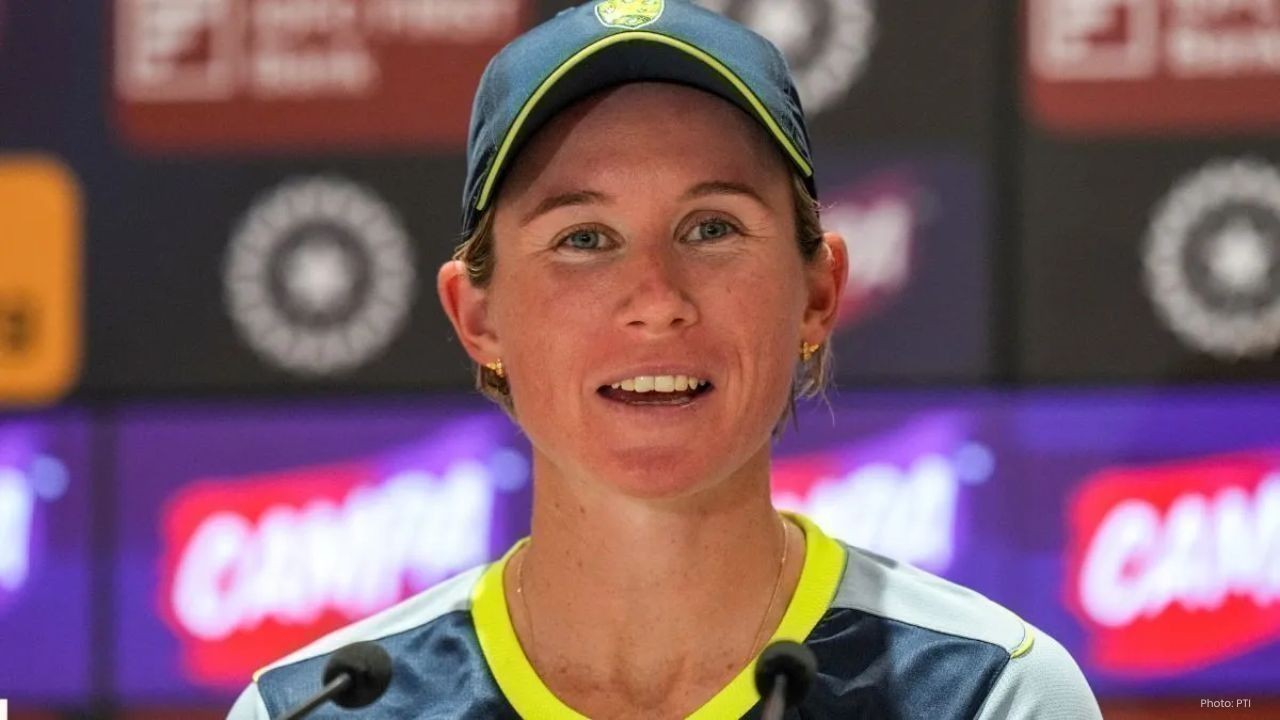
Post by : Anish
The European Union’s long-anticipated Digital Markets Act (DMA) and Digital Services Act (DSA) are fully in force in 2025, heralding a historic shift in how Big Tech companies operate within European borders. These sweeping regulations represent the most significant challenge yet to the market dominance of tech giants like Google, Apple, Amazon, Meta, and Microsoft.
More than just regional legislation, the EU’s new antitrust rules are reverberating across global markets, influencing regulatory debates in the United States, Asia, and other parts of the world. In the process, they are forcing technology companies to rethink their business models, product offerings, and competitive strategies.
For years, EU regulators have expressed growing concern over:
Monopolistic practices by tech giants.
Data privacy violations.
Unfair competition harming smaller European tech firms.
Disinformation and online harm on major platforms.
The Digital Markets Act (DMA) targets anti-competitive behaviors, aiming to limit gatekeeping practices of dominant online platforms, while the Digital Services Act (DSA) focuses on user protection, online safety, and transparency in digital services.
The primary objective is to level the playing field, empower European businesses, and protect EU citizens from the excesses of unregulated Big Tech dominance.
Under the DMA, companies labeled as “gatekeepers” — typically those with:
Annual EU revenues exceeding €7.5 billion or
More than 45 million monthly active users in Europe —
are subject to stricter rules, including:
Ban on self-preferencing: Companies cannot rank their own products or services ahead of rivals in search results or app stores.
Mandatory data sharing with competitors: Especially for platforms dominating a specific market.
Interoperability requirements: Messaging services must be compatible with other platforms.
Restrictions on tying services together: Preventing compulsory bundling of services to block rivals.
Prohibition of anti-competitive user tracking: Limits on cross-service data collection without explicit consent.
Failure to comply may result in fines of up to 10% of global annual turnover, and repeat offenders can be forced to divest parts of their business within the EU.
The DSA complements the DMA by focusing on content moderation and consumer protection:
Faster removal of illegal content such as hate speech or counterfeit goods.
Transparency in algorithms: Big platforms must explain how algorithms influence user feeds and recommendations.
Ban on targeted advertising to minors.
Independent audits to ensure platform compliance.
Crisis response mechanisms: Platforms must act swiftly during public emergencies (e.g., pandemics, terrorist attacks).
For major platforms like Facebook, Instagram, TikTok, and YouTube, these provisions require significant restructuring of content policies, moderation systems, and advertising models within Europe.
The enforcement of DMA and DSA has prompted swift and dramatic reactions from Big Tech:
Apple has made changes to App Store policies, including allowing alternative payment options within the EU.
Meta (Facebook and Instagram) introduced ad-free paid subscriptions in Europe to comply with user consent requirements for data tracking.
Google revised search result structures, providing more visibility to rival services.
Amazon altered Buy Box algorithms to include more competitors and allow third-party logistics options.
Microsoft committed to fairer practices in cloud services, reducing bundling with products like Office 365.
These adjustments not only impact European operations but also have spillover effects, influencing the companies’ global product strategies.
Europe’s startup ecosystem has welcomed the new rules as a competitive equalizer:
Smaller platforms now have better chances of visibility on search engines and app stores.
European cloud providers anticipate growth with fewer barriers to market access.
Consumer choice has expanded, especially in fintech, e-commerce, and media platforms.
According to a 2025 report by the European Commission, there has been a 15% increase in market share for European digital SMEs since DMA enforcement began.
Europe’s regulatory crackdown is inspiring similar actions elsewhere:
United States: The American Innovation and Choice Online Act is gaining bipartisan support, mirroring DMA-like restrictions.
United Kingdom: The Digital Markets Unit (DMU) has introduced new codes targeting dominant platforms.
Australia and Canada: Regulators are advancing stricter competition and transparency rules on digital platforms.
India: Discussions around Digital Competition Act are gaining momentum.
As a result, global tech companies are increasingly required to customize services regionally, creating fragmented product strategies and raising compliance costs.
While regulatory compliance is crucial, Big Tech companies now face several challenges:
Rising operational costs due to regional customization.
Reduced profit margins in key segments like digital advertising.
Increased legal risks, including massive fines for violations.
Potential loss of market dominance, especially in high-growth sectors like fintech and e-commerce.
Some tech firms are considering new monetization models, such as subscription-based services and paid premium versions to offset declining ad revenues.
For European consumers, the new rules promise tangible benefits:
More choices in digital marketplaces.
Greater transparency in pricing and search results.
Enhanced data privacy protections.
Better content moderation with reduced harmful or illegal material online.
This shift signals a more consumer-first digital economy, potentially becoming a template for global online rights.
The next 12–18 months are likely to witness:
Landmark legal battles as Big Tech challenges certain provisions in European courts.
Rapid product iterations as companies adjust to enforcement clarifications.
New entrants in various tech segments, from search engines to app distribution.
Regulators have indicated the DMA and DSA will evolve, with updates expected by 2026 based on market behavior and enforcement experiences.
The European Union’s DMA and DSA have set a powerful precedent, showcasing how democratic governments can curb monopolistic behavior and protect digital rights without stifling innovation.
Although Big Tech faces increased costs and reduced dominance, smaller companies, consumers, and the broader digital ecosystem stand to benefit from greater fairness, transparency, and accountability.
As the world watches Europe’s regulatory experiment unfold, it is clear that the era of unfettered tech dominance is over, replaced by a more balanced, rights-focused digital economy likely to influence global markets for years to come.
This article is for informational purposes only. It does not constitute legal or investment advice. Readers should refer to official regulatory announcements and legal resources for complete guidance.

The Rise and Fall Show India A Reality Entertainment Revolution
The Rise and Fall Show India brings a fresh wave in reality TV blending drama strategy and inspir

Timbaland to Headline One-Night-Only Dubai Arena Show
Legendary producer Timbaland performs Nov 28 at Dubai’s Coca-Cola Arena, featuring hits, his son Dem

British Couple Freed After 8 Months in Taliban Captivity
Barbie and Peter Reynolds reunited with family in Doha after 8 months in Taliban captivity, highligh

Beth Mooney Blasts Record ODI Century, India Reeling
Beth Mooney scores 138 off 75, equaling second-fastest ODI ton. Australia crush India, conceding mos

Rutgers Football 2025 Key Moments Challenges & Future Outlook
Explore Rutgers Football 2025 season highlights recruiting updates key challenges and what s next

Algeria-Mali Drone Dispute Sparks Regional Tensions
Mali accuses Algeria of downing its drone; Algiers denies, citing airspace violation. Diplomatic tie

Iraq Launches First Industrial-Scale Solar Plant in Karbala
Iraq opens its first large solar plant in Karbala, aiming to ease chronic power shortages and boost

The Rise and Fall Show India A Reality Entertainment Revolution
The Rise and Fall Show India brings a fresh wave in reality TV blending drama strategy and inspir

Rutgers Football 2025 Key Moments Challenges & Future Outlook
Explore Rutgers Football 2025 season highlights recruiting updates key challenges and what s next

H1B Visa 2025 Trump s New Rules $100K Fee & Gold Card Visa Explained
Trump s 2025 H1B visa rules bring a $100K fee stricter entry limits and a new Gold Card visa Find

The Smart Guide to Choosing the Right Protein Supplement for Your Diet
Learn how to choose the right protein supplement for your diet Discover types benefits and tips f

Street Art & Urban Culture How Murals Tell Stories Worldwide
Explore street art worldwide Discover murals that tell stories inspire communities and shape urba

The Revival of Vinyl Records Why Old School Music is Making a Comeback
Discover why vinyl records are making a comeback offering rich sound nostalgia and a real music e

Healthy Habits That Actually Stick Ditch the All or Nothing Mindset Today
Build healthy habits that last by ditching the all or nothing mindset Focus on small steps consist

10 Bridal Lehenga Designs to Set Wedding Fashion Trends in 2025
Explore 10 stunning bridal lehenga designs of 2025 from pastels to metallics perfect to set weddin